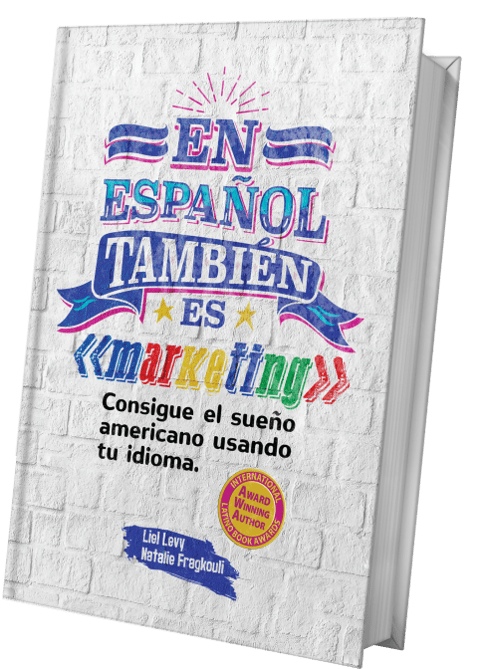Editor’s note: This post was originally published in May 10th, 2020 and was updated on May 15th, 2020 for accuracy and comprehensiveness.
Google rolled a new core update in early May. After January’s update, Google introduced a new algorithmic change. Let’s find out what we know so far, how it affects your law firm’s SEO strategy, and tips on how you can react.
The world of SEO is all about Google search and rankings. Periodically Google introduces algorithmic updates that change the way the search engine is crawling, evaluating, and ranking your law firm website. On May 4, Google started rolling out it’s latest core update, and although it’s still early today, we will dive into the first impressions, and we’ll give you actionable tips for your law firm’s SEO.
Let’s begin with a preliminary comparison to the previous core updates. The most recent Google update took place in January 2020 and the prior in September 2019. Early reactions indicate that the current algorithmic update is wider than the two previous ones, with experts stating that it might be among the most major ones in recent years. Please note that it’s a global update, and it’s not specific for any industry or particular location.
What are the first indications proving the importance of the May 2020 update?
According to data from SemRush, almost every category showed increased volatility, ranging from 9 to 9.4. That indicator was at around 8 for January’s update.
What do we mean by SERP volatility? It’s the metric measuring the fluctuation in Google ranking. The higher the number, the bigger the risk index for position changes in organic search results.
You might wonder if this is relevant to your law firm’s digital strategy. It is as it can have an impact on your ranking for high intent keywords, and as a result, on your traffic and conversions.
Of course, we don’t base our articles on a simple metric. MozCast, a tool measuring the SEO weather and turbulences, indicated a temperature of 112, 20% increased compared to previous weeks.
Who’s been impacted the most and what’s the first impression for legal SEO?
SEO experts expected specific industries, such as offline events, hospitality, tourism, and retail shopping to drop amid the COVID-19 pandemic. The decrease in traffic, however, was even deeper for these categories, making them the SERP losers of this core update. On the other hand, different sectors have benefited. The most prominent are news, health providers, and some PR outlets. Is it safe to relate the core update to the pandemic? Well, it’s still early to tell with confidence, we’ll be able to make conclusions in a couple of weeks when it’s completely rolled out.
What happens in the legal digital sector? Early indicators show that Attorneys and Law Firms have been somewhat affected, but the sector isn’t among the most volatile ones. You can expect some turbulences, but so far we believe that they’re related to the ongoing condition. If you are a Personal injury attorney and you noticed a slight drop in your organic traffic, it might be too soon to panic, as this might be a result of the reduced number of cars driving around.
Tip: If your law firm handles various types of cases, make sure to monitor all practice areas. This is the first way to understand if you need to start worrying or not.
Has your law firm website been negatively affected by the May 2020 update?
We’ve got you covered with some tips.
- Google values quality and performance. The first point you need to take care of is your website’s performance. Check your speed on desktop and mobile and make sure that everything is working. Google penalizes broken links and long loading times. If you need help with your website, don’t hesitate to contact us for a free website audit.
- Have you performed any changes on your website structure lately? Give them some time, the reevaluate them and potentially rework them to be better optimized for search engine crawling. Your headlines, titles, and subject lines should be descriptive, should summarize content, and not include any exaggerating or shocking g phrases.
- Content is king. But what kind of content? Original, unique, and not duplicate content. Go over your legal web pages, start from practice areas, and then move to other pages, including your blog posts. Ensure that you don’t have duplicate text on pages and if you do work on them and rewrite their content. Since you are on content strategy, it might be your opportunity to work on your Hispanic legal SEO. Transcreate your website to make it appealing to Spanish speaking audiences, capturing their interest.
- Work on your Onsite linking. Begin with your law firm’s internal links, creating an interconnecting strategy for your practice area pages and blogs. Offsite link-building is also important, especially when coming from authoritative sources. Attention, tip incoming: Youtube is a significant authority, so if you don’t already have a youtube channel, create one and add your link. You could also create short videos using Google’s new Video Builder. These new videos could provide additional links to specific practice areas.
- Research your competitors. Benchmark their best practices and monitor their performance. If another law firm is ranking higher, you should identify what they’re doing right, and start doing it, better than them.
What are our key takeaways?
- News outlets seem to be the big winners of this core update, while offline events providers and retail shopping are on the losing side so far.
- Don’t panic. Monitor your law firm’s organic performance during the next couple of weeks when the algorithmic update will be fully rolled out. We understand that you want to stay on top of SERPs, but any actions have to be planned and strategic.
- Loading time on desktop and mobile devices is a crucial component for Google. Your law firm’s website should load in less than 2 seconds.
- Broken links are a red flag for Google; you should avoid them at all costs.
- Your website’s structure should be SEO friendly, making it easily crawlable for the search engines, and readable for the user.
- Work on your content. Make sure it’s original and unique. Look into the opportunity of attracting US Hispanics with transcreated content in Spanish. If you need help, don’t hesitate to contact us, we are the bilingual legal digital experts.
May 15th update
As the Core Update keeps rolling out, we continue to collect data. Here are some valuable updates:
- Directories and other aggregators seem to be gaining momentum. Experts consider their link-load as a decisive factor. Some reports show that aggressive link strategies are now working better, even in highly competitive environments. We will keep an eye on their performance in the coming weeks. This might be temporary until Google shorts out the value of each linking strategy.
- Pages built around thin content are among the biggest losers of May 2020 Core Update. We’ve been stressing the importance of content for your digital marketing strategies. Now it’s even more evident that you need to enrich your law firm’s website with unique, original, and meaningful content. We’ve prepared an article with actionable tips for your law firm’s content strategy.
- The Core Update is impacting websites and businesses considered YMYL (Your Money or Your Life). Legal Services fall into the YMYL category, so pay close attention to your organic performance and evaluate your strategies.
- According to reports from Market Muse, the Core Update is impacting local search. Aggressive link acquisitions seem to be gaining ground, positively affecting nationwide directories. We’ve noticed that websites such as Findlaw, Superlawyers, and Justia are now ranking higher.
- We’ve noticed increase volatility in the SERP features, such as snippets. If your law firm’s digital strategy includes aggressive schema, you should review the effects of the Core Update. A helpful tool is AHREFs, it can save you time and effort.
- We continue collecting data and evidence, but we’ve seen signs that the update has connections to the search intent amid COVID-19. We’re gathering more information, and we’ll update you again in the next few days.



